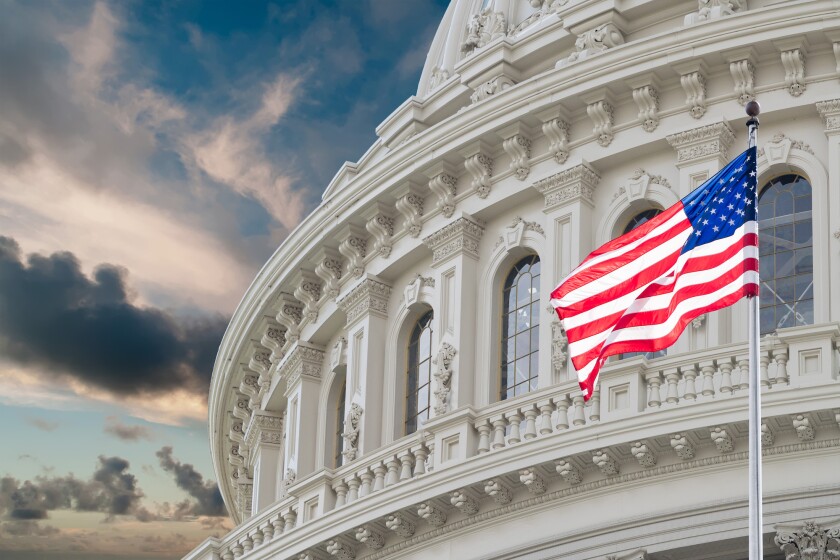The National Foreign Trade Council sent a letter to the OECD questioning the compatibility of pillar two minimum tax rules and international tax legislation on Monday, May 1.
The US trade organisation, which lists Amazon and EY on its board of directors, has taken issue with what it says are complex and contradictory rules.
It raised a number of concerns including the existence of rules that still require further work and clarification, and the uncertainty around how these rules will interact with the US tax system.
The council also called for simplification across the board owing to the complexity of the rules and documentation on issues such as safe harbours, stating that the OECD “should consider consolidating the rules and simplifying their presentation”.
The letter went on to say that the global anti-base erosion rules tax credits system is “punitive” for multinationals headquartered or operating in the US, and highlighted the persistent risk of double taxation.
HMRC holds public consultation on crypto taxation
HM Revenue and Customs launched a decentralised finance consultation on Thursday, April 27, to gather feedback on a proposed modification that would affect the way some crypto-asset transactions are taxed.
This change would mean that DeFi transactions involving crypto-assets – specifically staking and lending transactions – would no longer be subject to capital gains tax.
Instead, a transaction would only be subject to capital gains tax when crypto-assets are “economically disposed of in a non-DeFi transaction”.
The UK tax administration has stated that it would like to hear from “investors, professionals and firms engaged in DeFi activities”. These include technology and financial services firms, trade organisations, academic institutions, and advisory firms.
Depending on the nature of the feedback received, HMRC has also said that it will consider hosting consultation meetings. The consultation period is set to close on June 22.
Chile set for tax reform talks after council election
The Chilean government plans to go back to talks on tax reform after the May 7 election of a 50-member Constitutional Council.
Finance Minister Mario Marcel told a press conference held yesterday, May 4, that the government still hopes to change the tax system and implement a new wealth tax, reported Bloomberg.
President Gabriel Boric wanted to secure tax reform earlier this year, but Congress narrowly rejected his proposed legislation in March. The legislation included plans for a wealth tax of 1% on individuals with more than US$4.9 million in assets and 1.8% on those with more than US$14.7 million.
King Charles faces demand to change UK policy on tax havens
Tax justice campaigners have called on King Charles to support public registers of beneficial ownership in offshore, low-tax jurisdictions with constitutional ties to the UK.
Alex Cobham, chief executive of Tax Justice Network (TJN), wrote an open letter on Sunday, April 30, to King Charles asking him to demand the break-up of “the UK’s network of tax havens”.
“The UK, the crown dependencies and the British overseas territories are collectively responsible for facilitating nearly 40% of the tax revenue losses that countries around the world suffer annually to profit shifting by multinational corporations and to offshore tax evasion by primarily wealthy and powerful individuals,” wrote Cobham.
The TJN letter was also addressed to Prime Minister Rishi Sunak. However, the UK government shows no sign of forcing the Channel Islands to open their records or pushing British overseas territories to establish public registers.
“The UK is now standing in the way of the march of progress,” wrote Cobham.
Businesses want clarity on Malta’s minimum tax reform
Malta is set to implement the OECD’s pillar two proposal for a global minimum corporate tax rate of 15%, but taxpayers want greater clarity on the details of this reform, reported MaltaToday on Sunday, April 30.
The Maltese government has a draft proposal to overhaul its tax system, but it has not published it yet. Finance Minister Clyde Caruana has said that the plans are going through “simulations” to test their impact.
Businesses based in Malta face income tax of 35% (but not under a distinct corporate regime) with an imputation system granting them refunds on their tax liability. This allows taxpayers to reduce their tax bill to 5% or less.
Australia closes public CbCR consultation
The Australian government closed its consultation on mandatory public country-by-country reporting on Friday, April 28.
Australia may be set to become the first country to make public CbCR mandatory, including for global activities. However, the proposal has to go through the full legislative process before July 1, when it is set to come into effect.
Parliament is next sitting for the federal budget from May 9 to 11, so the next opportunity for a vote would be between June 13 and June 22. Nevertheless, many observers expect the Australian government to win a vote on public CbCR despite the tight timeframe.
Next week in ITR
ITR will be following up on the HMRC consultation on DeFi and the taxation of crypto-assets in the UK. These proposed changes are a part of an international trend of governments seeking to tax crypto transactions.
In other news, the Australian government will be announcing its federal budget next week before the public CbCR proposal can be voted on in June.
Readers can expect these stories and plenty more next week. Don’t miss out on the key developments. Sign up for a free trial to ITR.











